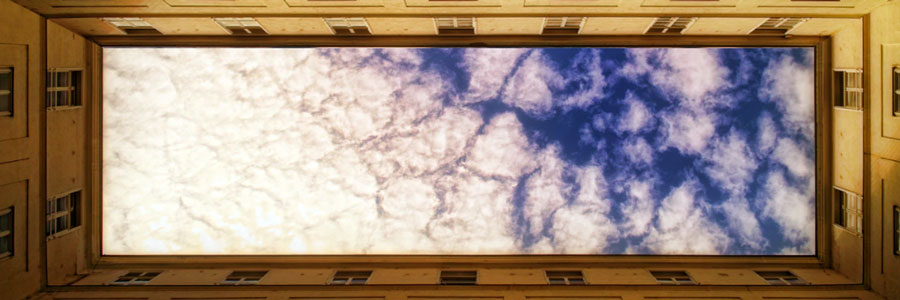Expertise and Godhood in a Limited Frame

An optimist can hope, as does Barton Swaim, future generations will recognize that the supposed experts of our times have been, “at crucial moments, idiots,” but such optimism would miss fundamental explanations and incentives.
The errors of those to whom our society looks for sage guidance have been broadly infectious, but for clarity of the point of this essay, let’s focus on the political. In 2016, Swaim suggests, “America’s best and brightest political adepts turned out to know very little about the elections they claim to understand.”
That observation isn’t quite accurate; the fact that the adepts didn’t know enough doesn’t mean they know “very little.” Just so, as skeptical as we should be about credentialism, credentials aren’t only fancy acronyms (or rather, they aren’t always only that). The experts are experts; it’s just that their expertise applies to a narrower range of possible realities than they (or we, as a reliant community) like to admit.
But if the experts know, on some level, that beyond the ornamented edges of their institutional degrees lies a vast unknown in which their runes have no power, we can see how susceptible they must be to a corrupt elite who promise to operate within the experts’ necessary frame, thereby maintaining the relevance of their expertise. Politicians who more or less follow the recognized formulas make their activities predictable for those whose credibility relies upon their predictions about politics.
A problem has increasingly arisen because the inertial force of the elites’ corruption — drawn toward the gravity of total control promised by progressivism — prevents them from keeping within the necessary boundaries. The more the People challenge the progressive project, the farther progressive politicians must move, to the point that they are pressing untenable falsehood, lest truth overwhelms them before they have the total control they desire.
Thus, for example, they began with the shared principle that even speakers of ideas we find detestable have a right to the public square on the grounds of social tolerance, intellectual humility, and cultural confidence. This moved to the argument that those speakers deserved public funding (if they were progressive) so they might be better heard, which was followed by the demand that other speakers, whose ideas were opposed to the formerly detestable, must be denied government support. Next, the formerly accepted, but newly detested, ideas (i.e., traditional norms) have been said to be so pernicious that they must be declared unspeakable — with, finally, those who persist in speaking them shamed, canceled, and prevented from maintaining an ordinary life. Because progressive ideas cannot bear scrutiny at the level of their assumptions, the ban is now extending not only to adherents of old, newly detested ideas, but also to others who continue to state the originally shared principle that deplorables have a right to the public square.
For their part, the experts have no choice but to keep pace, not only because they wish to be seen as elites, but also because delusion is a comfortable bubble in which to float through the unknown beyond their expertise. Just so, they must proclaim as indisputable the fantasy that pop-culture reality star Donald Trump was some sort of Russia-controlled fascist riding a wave of palpable and systemic white supremacy, because otherwise, the experts would have to recognize that their political friends are not serving the public in some way that they — both the intellectual and political elite — do not understand or cannot accept.
No matter how much damage it might cause, the symbiotic relationship between power and knowledge in every area — politics, foreign policy, climate change, social issues, monetary theory, and more — requires that the political elite must continually double-down on disproven policies while the experts explain why the evidence proves their necessity.
We needn’t follow this path very far before it becomes existential. Eventually, one must either accept reality or rebel against it. One must either accept the nature of reality’s creator and source of volition or insist that one’s own feelings are, in actuality, the creative force of the universe and its true source of volition.
To be sure, only a vanishingly small minority of those who lean toward rebellion against reality and God will put this much thought into it. Indeed, many will actively resist any temptation or urging to do so.
In an essay about fear of religion among secular intellectuals, Matt Nelson quotes “philosopher and atheist” Thomas Nagel as writing, “The thought that the relation between mind and the world is something fundamental makes many people in this day and age nervous.” Nelson speculates that the reason for this nervousness is that “people despise religion and are afraid it is true.”
As nicely simple as it is, this formulation fills the pronoun, “it,” to the bursting point. Which “it” is true? Perhaps the fear derives from the need to answer that very question, because ultimately, again, one must either accept external rules — which may impose restrictions and which others may genuinely better understand — or accept the responsibility of being the source of rules.
Turning to New Age spirituality, Nelson cites C.S. Lewis’s description of “Life Force philosophy,” which (Lewis wrote) “gives one much of the emotional comfort of believing in God and none of the less pleasant consequences”:
When you are feeling fit and the sun is shining and you do not want to believe that the whole universe is a mere mechanical dance of atoms, it is nice to be able to think of this great mysterious Force rolling on through the centuries and carrying you on its crest. If, on the other hand, you want to do something rather shabby, the Life-Force, being only a blind force, with no morals and no mind, will never interfere with you like that troublesome God we learned about when we were children.
Put more concretely, the function of this Life Force concept is to provide a sense of connection when one wants to feel a part of something grand and good, but to painlessly and temporarily sever that connection when one wishes to do something that would harm the sparkling universal flow of life if we truly were connected. It is as if a husband or wife who values the long-term security and cultural approbation of marriage believes that removing his or her wedding band for an evening prevents an adulterous fling from harming the relationship.
As materialist New Age spirituality is to theology, so a credentialist Belief in Science is to public policy. Experts and politicians want neither to acknowledge their limits nor to take responsibility when their overextension does not work as they promised. When predictions are being made and new restrictions imposed on the public, progressive politicians provide a shape for their preferred solutions, and experts find it fulfilling to think that their expertise can have historic significance in the wellbeing of humankind. When their scheme fails and unanticipated consequences emerge, the experts insist that they lacked sufficient data, and the politicians claim their political opposition imposed too much restraint.
So, social engineers determine to dismantle more of the cultural machine, and progressive economists call for bigger, more-risky stimulus. The ideologues’ cloud of dismissal moves its shadow over truths that are even more obvious to the average person, and citizens who are even more clearly moderate face the partisans’ mandate to submit or be banned.
On it will go until a sufficient mass of the public imposes a return to sanity or reality asserts itself through irrefutable ruin. In the course of either corrective process, however, the politicians will merely shift their tones, and the experts will behave as if it was their data, rather than their principles, that were corrupt.
The likelihood that any of them will in any sense be held to account for their lunacy is vanishingly small. The best we can hope for — and an objective toward which we who have eyes to see should begin working now — is that they will be displaced by a new generation of experts who are willing to admit the limits of their expertise.


